Today’s MZ generation is called the ‘Meaning Out’ generation—going beyond simple consumers to practice their beliefs and values through action. They expect companies to realize authentic social values and pursue experiences where they directly participate and create meaning, rather than simply following company-set directions. Amid these changes, corporate social contribution methods are also reaching a new turning point.
MyIB has focused on these zeitgeist changes to develop Korea’s first matching gift SaaS platform ‘Give&Match.’ Matching gifts are a participatory social contribution method already widely used in developed countries overseas, where company employees directly select donation topics and beneficiary organizations of interest, and the company matches and donates together. For example, if an employee donates $7 USD (10,000 KRW) to an organization, the company provides matching support according to their policy, and even volunteer activities can receive matching support. This creates a satisfying situation for everyone—employees, companies, and beneficiary organizations.
In North America, over 65% of Fortune 500 companies have already adopted matching gifts to create meaningful social value together with their members. Particularly, Benevity, which operates matching gift businesses in North America, delivered approximately $3.2B USD (4.5 trillion KRW) in donations to society in 2023 alone, representatively demonstrating the remarkable impact of matching gifts. MyIB aims to surpass Benevity while using it as both a role model and benchmark.
‘Give&Match’ is creating a virtuous cycle where companies and members grow together through three core solutions: donations, volunteer activities, and fundraising. Through the donation solution, employees can select areas of interest and the company can participate in individual donations according to company matching policies. The volunteer activity solution converts employees’ volunteer hours into donation points that can be donated to desired organizations, while the fundraising solution provides opportunities for employees and companies to join forces in response to natural disasters or social emergencies. As corporate social responsibility is emphasized and ESG spreads as a key management indicator, ‘Give&Match’ has greater potential for expansion.

MyIB was founded when CEO Park Young-hee, an HR expert with 22 years of experience who majored in psychology at Seoul National University and obtained a master’s degree in human resource management from Cornell University, met CTO Lee Eui-ho, who has 20 years of IT development experience working at NHN, Kakao, and others. CEO Park particularly has firsthand experience introducing and implementing matching gifts while working in the United States, accurately understanding success factors from the customer perspective.
What about performance? Since founding in September 2023, MyIB has been executing planned goals without setbacks in just over a year—launching MVP, conducting PoC, starting paid services, and releasing mobile apps. Corporate customers have already been secured, with Kolmar Holdings adopting ‘Give&Match’ as the first paid contract, and LG Uplus recently completing a successful pilot and currently considering full deployment. When asked what organizations employees donate to most frequently, CEO Park responded that “there’s much interest in animal rescue organizations and women’s rights organizations, and much affection for economically disadvantaged groups such as university student night school support.”
Beyond a simple platform, MyIB is building a complete matching gift ecosystem and has constructed strong market entry barriers through establishing the incorporated association MyIB with Ministry of the Interior and Safety approval and designation as a public interest organization by the Ministry of Economy and Finance. In a market reaching approximately $679M USD (950 billion KRW) including 4,039 large corporations, mid-sized corporations, and public enterprises domestically, the company plans to expand the market through a strategy of creating success cases with 20 ESG-leading companies and then spreading them to other companies.
CEO Park, as a startup team receiving support from Gyeonggi Content Agency’s Pangyo Gyeonggi Culture Creation Hub, expressed gratitude that “the Pangyo Hub support program provided an opportunity to review our team’s competitiveness and achievements once again, and the various infrastructure provided through Pangyo Hub has been a great help in operating and expanding our early-stage business.”
MyIB aims to create a warm platform where their business success leads to accomplishment for companies and members, and leads to capacity building for Korean non-profit organizations. MyIB’s English full name ‘Make your Impact Bigger’ well expresses this orientation. MyIB hopes to innovate corporate social contribution methods through ‘Give&Match’ and contribute to achieving Korea’s Sustainable Development Goals (K-SDGs). Let’s watch MyIB’s journey creating a new paradigm where companies, society, and individuals prosper together at the center of warm and bold change.
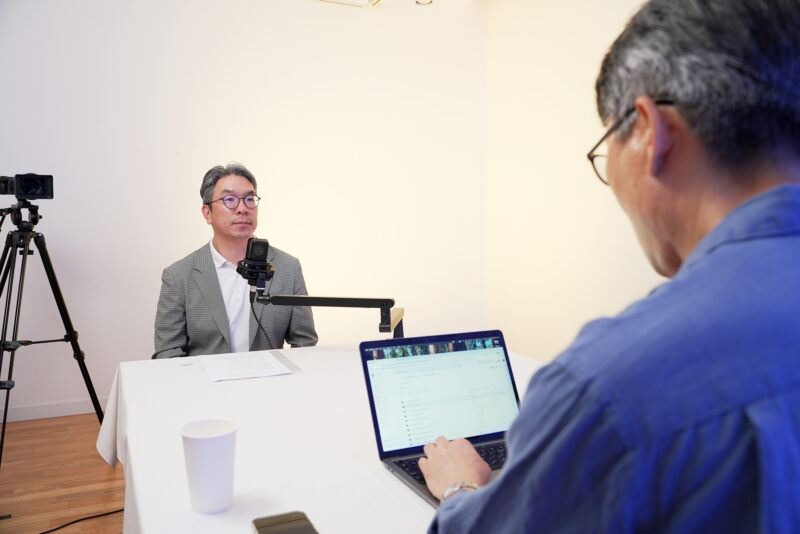
What problem is MyIB trying to solve?
The participatory social contribution method called ‘matching gifts,’ widely utilized in developed countries overseas, has not yet taken root in Korea. The decisive reason is the lack of a software platform. MyIB aims to innovate corporate social contribution methods through member participation via Korea’s first matching gift SaaS platform ‘Give&Match.’ Matching gifts implemented through ‘Give&Match’ allow corporate employees to directly select donation topics and beneficiary organizations, spreading donation culture among the MZ generation who express personal beliefs and values through consumption and action. Existing company-led donation methods not only lower MZ generation participation rates but are perceived as repetitive administrative actions without particular inspiration.
While there are several donation-related platform companies domestically, they don’t implement matching gifts, and services like ‘Naver Happybean’ or ‘Kakao Together’ cannot provide services to other companies. Some companies operate donation platforms themselves, but operating costs are high and there’s no commercialization possibility outside that company.
Overseas, especially in North America, external matching gift platforms are adopted to meet corporate needs for advanced social contribution, with Benevity, which started in Canada, being the most representative company. MyIB aims to compete with Benevity in the Asian market beyond becoming Korea’s Benevity.
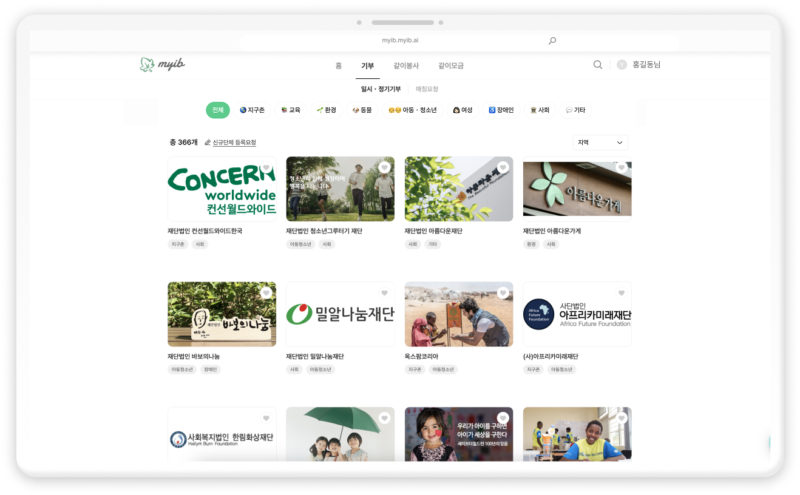
How does MyIB solve this problem?
MyIB is primarily focusing on creating and expanding the domestic matching gift market. In North America, since Benevity first started matching gift SaaS platform services in 2008, it has spread rapidly so that over 65% of Fortune 500 companies currently provide matching gift platform services to employees.
Domestic matching gift adoption is expected to proceed in a similar direction. We first aim to create matching gift adoption cases centered on ESG-leading large corporations and spread these to other large and mid-sized corporations. Simultaneously, we plan to quickly promote matching gift adoption to public enterprises and institutions through registration with the Public Procurement Service’s Venture Nara.
What specifically are MyIB’s current products/services?
MyIB has been continuously upgrading the ‘Give&Match’ service since founding in September 2023. We launched MVP in June 2024, conducted PoC in July, started corporate paid services (first revenue) in September, and released on mobile app stores in June 2025. In the second half of this year, we plan to add AI-based donation organization curation services.
‘Give&Match’ consists of three core solutions. First, through the donation solution, employees can find desired donation topics and decide on donation organizations, completing matching according to company policy (matching limits and ratios). Second, in the volunteer activity solution, after employees volunteer internally or in local communities and register on the ‘Give&Match’ platform, the company provides donation points to employees according to company policy (donation points per volunteer hour). Employees can then use donation points for desired donation organizations. Third, in the fundraising solution, online fundraising boxes are opened for natural disasters or social emergencies, and when target amounts are reached, companies match and participate in fundraising together with employees.
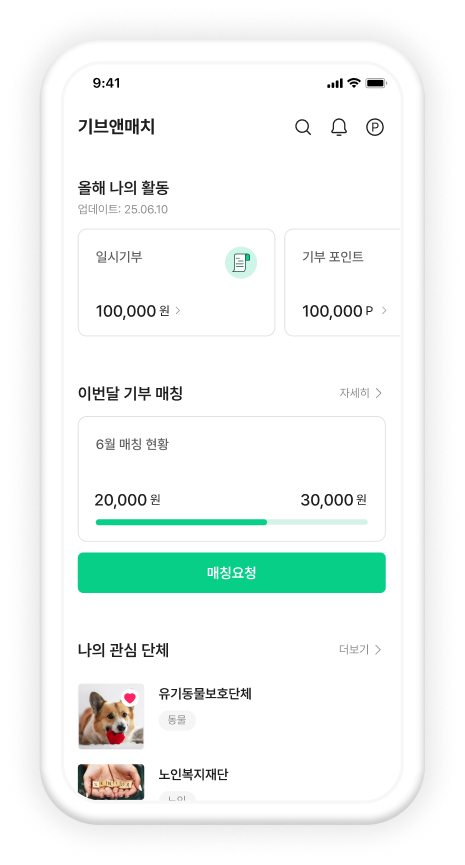
What is MyIB’s competitiveness/differentiation compared to competitors?
Overseas, especially in North America, numerous matching gift online platform service companies exist, among which Benevity is our role model and benchmark target. While Benevity and other overseas companies have no plans to enter the Korean market for the time being, we judge we can secure competitive advantages even if competing in the Korean market in the future. Specifically, MyIB can have greater competitive advantages in understanding and networking with domestic non-profit organizations, understanding corporate ESG management, donation processing know-how, and service pricing (for a 300-employee company: Benevity approximately $14.3K USD (20 million KRW) one-time setup fee vs. MyIB $5K USD (7 million KRW)).
Who are the core target customers, and what is the target market size?
The number of target companies in MyIB’s domestic revenue market (SOM) is 4,039. Specifically, there are 3,301 large and mid-sized corporations and 738 public enterprises and institutions. The average number of employees per company is approximately 1,407, and the arithmetically calculated matching gift platform market size is projected to reach approximately $679M USD (950 billion KRW).
The key strategy for penetrating the revenue market is getting 20 ESG-leading companies to adopt our service. We aim to organize this as a best case and spread it to other companies to expand matching gift platform adoption needs among them.
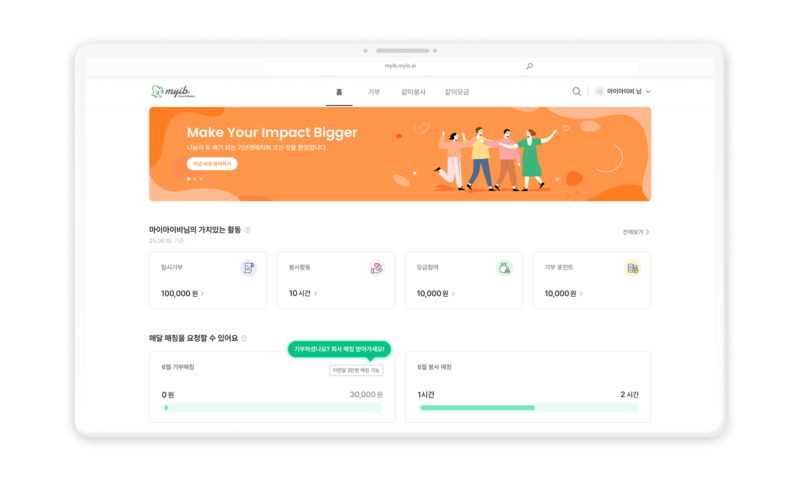
What is MyIB’s business model?
The main revenue sources are setup fees (one-time cost) and subscription fees (monthly) for the ‘Give&Match’ platform targeting companies, with each expected to account for a 30:70 ratio of total revenue. Setup fees and subscription fees are differentially applied according to company size (total number of employees), where larger companies have higher setup fees but lower per-employee subscription fees compared to smaller companies.
For example, a 200-employee company would have a monthly subscription fee of $343 USD (480,000 KRW) ($1.71 × 200) + one-time setup fee of $3.6K USD (5 million KRW), while a 3,000-employee company would have a monthly subscription fee of $2.6K USD (3.6 million KRW) ($0.86 × 3,000) + one-time setup fee of $7.1K USD (10 million KRW).
What achievements has MyIB made so far?
We secured two seed-stage investments in 2024. After first providing ‘Give&Match’ to Kolmar Holdings for a fee in 2024, we signed an extension contract in 2025, and successfully completed a pilot with LG Uplus’s Communication Center in the first half of 2025, considering full deployment in the second half. In 2024, we registered as a venture company and filed 3 patent applications, expanding collaborative relationships for business expansion by signing MOUs with Korea Guidestar, Good Life Lab, and Incorporated Association Root Impact.
We received social venture certification from the Ministry of SMEs and Startups in 2024 and approval to establish incorporated association MyIB from the Ministry of the Interior and Safety. In early 2025, incorporated association MyIB was designated as a public interest organization by the Ministry of Economy and Finance. Through this, we’re proud to be completing the matching gift business ecosystem. After being accepted to the Pangyo Techno Valley 2 Startup Support Center in early 2025, we’re gaining business recognition by passing Gyeonggi Content Agency’s ‘2025 Southern Region Early Startup Funding Support’ in May and being selected as a finalist in the Seongnam Chamber of Commerce and Industry’s 1st Business Competition in July.

What is the MyIB founding team’s competitiveness?
MyIB started as the optimal founding team for understanding matching gifts and platforms. CEO Park Young-hee is an HR expert with 22 years of experience who has direct experience introducing and implementing matching gifts at a company while working in the United States in 2022. Through this experience, she accurately understands matching gift purposes and operation methods while precisely grasping business success factors from the customer perspective. CTO Lee Eui-ho is an IT service development expert with over 20 years who has abundant development experience in games and social platforms at NHN, Kakao, and others.
Give three reasons why MyIB should receive investment.
First, while matching gifts are still unfamiliar domestically, there are clear success cases overseas. As Korea enters the advanced economy, needs to change corporate social contribution through new methods like matching gifts will clearly grow. And first-mover effects appear clearly in this business. We’re confident of creating J-curve growth by accumulating success cases as Korea’s first matching gift platform company.
Second, we’re expanding services through rapid technology development. Within one year of starting business in September 2023, we completed MVP while achieving planned goals without setbacks including PoC and paid launch. By successfully releasing mobile apps in the first half of 2025, we’re proving technological capabilities and driving force. We’ll create a virtuous cycle of service expansion and customer satisfaction by implementing better services using most new investment for securing development personnel.
Third, the matching gift business ecosystem created through incorporated association MyIB will operate as a strong entry barrier. We started incorporated association work when starting MyIB, invested time and effort with government-related departments including the Ministry of the Interior and Safety and Ministry of Economy and Finance, and finally completed incorporated association establishment approval and public interest organization designation. In an environment where it’s difficult to succeed in matching gift business by simply copying platforms, this ecosystem construction will be a strong competitive advantage.
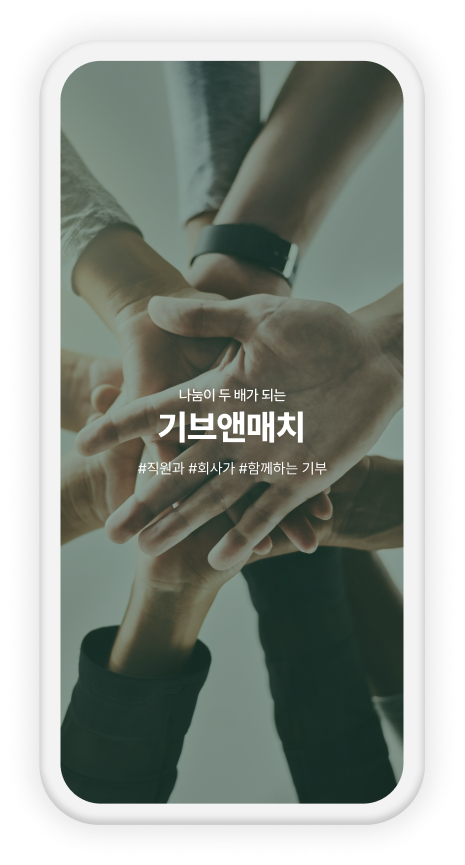
What advantages of Pangyo Gyeonggi Culture Creation Hub can you recommend to other startup teams as a supported company?
The process of applying to Pangyo Hub programs provided an opportunity to review our team’s competitiveness and achievements once again, and the results of currently ongoing projects will also be able to create important weapons for MyIB. The interview opportunity and various infrastructure provided through Pangyo Hub that can be freely utilized are also greatly helping in operating and expanding early-stage business.
Is there anything else you’d especially like to convey beyond the above questions?
I’d like to share MyIB’s grand vision. We think of the matching gift platform as a playground where companies and company members are active. Within our platform, donations or volunteer activities desired by company employees occur, and companies participate together through matching gifts. All monetary value from here is wholly used to strengthen the activities and capabilities of domestic non-profit organizations. Once our business reaches a certain trajectory, thousands of donation organizations will benefit annually. This will make our society’s safety net denser, solve difficult social challenges, and enable coping with newly emerging various issues. And when these forces gather, we expect them to lead to meaningful contributions to achieving the National Sustainable Development Goals, namely K-SDGs.
Benevity, introduced earlier, delivered a total amount of approximately $3.2B USD (4.5 trillion KRW) to society through donation processing in 2023. As it trends upward by over 10% annually, it probably exceeded $3.6T USD (5 trillion KRW) in 2024. Since Korea’s total corporate donations are about $3.6B USD (5 trillion KRW), the impact created by the single company Benevity equals all Korean corporate donations. In the US, it’s estimated that matching gifts created up to 20% of corporate donations. Applying this to Korea, approximately $714M USD (1 trillion KRW) in donations could be delivered to society through matching gifts. MyIB will play this role.
MORE FROM THE POST
- [Korean Startup Interview] StudioMetaK: Leading the Content Industry with AI Video and Virtual Human Technology
- [Korean Startup Interview] Hypercent: Taking on the Box Office Challenge with Backrooms Horror Co-op Game
- [Korean Startup Interview] Joomalstory: The Answer to “What Should I Do This Weekend?” for MZ Generation
- [Korean Startup Interview] UBIS: “We’ll Change the Game Character Development Landscape with UBIS AI Agent”
- [Korean Startup Interview] KOIVIS: “Targeting Global Market with Automatic Playlist Replication and Migration”
Share
Most Read
- 1
- 2
- 3
- 4
- 5


Leave a Reply